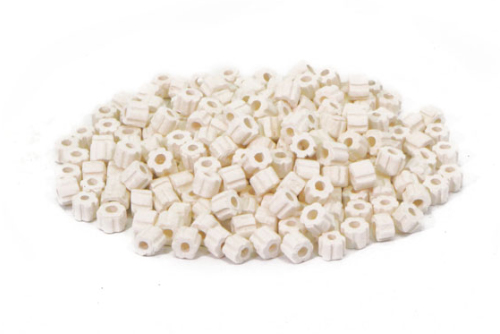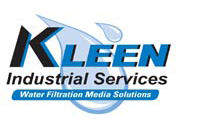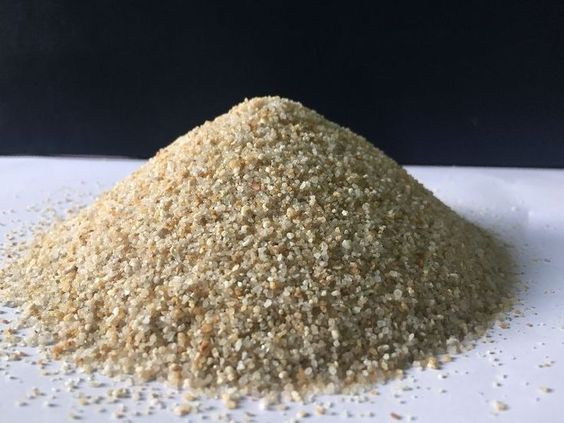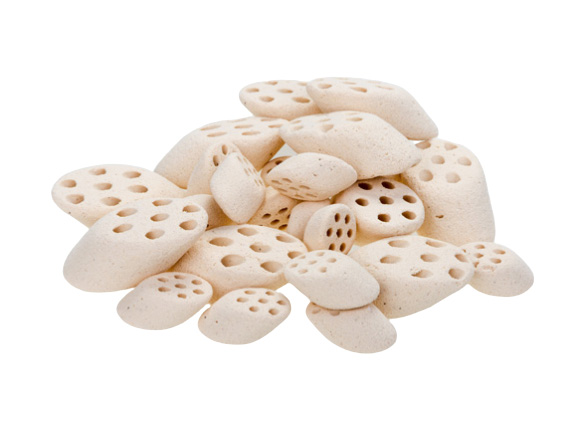
Toxins, impurities, particulates, deposits, bacteria, worms, infections, fungus, and the odor of chlorine are all removed from the water we consume, use for cleaning, or perhaps even swimming by using industrial water filters. Medicinal, pharma, commercial, agricultural, biotech, drainage facilities, and fish tanks are just a few of the sectors that employ these water filters.
Water is filtered for drinking, swimming pools, aquaculture, irrigation, wastewater treatment, rainwater management, and other purposes using a filter medium.
These filters are employed for both mechanical and biological filtration. Filter brushes’ hair effectively collects organic waste such as fine dirt pieces, unconsumed food debris, any decomposing plant particle, or other things at the beginning stage, increasing the effectiveness of a biofiltration procedure.
The filter brushes also offer a surface on which bacteria can adhere, develop, proliferate, and live in order to carry out the nitrification process.
Here is a list of Top water filter media supplier for you to fulfill your purpose:

Mountain Tree created this technology with scientific ways that help restore water conditions with its flowing and self-cleaning activities. It helps preserve the pond’s sanitation and purity for a long period. It removes odors and keeps a clean pond environment. It prevents algae from growing quickly and eliminates water that has a green tint.
It helps sustain the existing environment of the pond’s development in a balanced manner. Mountain Tree filter brushes come in a variety of forms and varieties, and they may be used for up to 5 years, making them both dependable and low-maintenance. You can also get aquarium filter foam bulk cost-effective options.
Products and Services Offered:

Acuro’s Filter media solutions are the best quality media available, delivering the world’s best water filtration and well pack media.
Their extensive selection of filter media, including water filter sand, sediment yield, pebbles, and stones, meets the stringent requirements for water supplies and pool water filtration.

Fluid Systems is a renowned manufacturer of water and wastewater processing systems. They provide a comprehensive variety of Water & Wastewater Processing services along with a broad array of industries, leveraging unique and cutting-edge equipment and technology.
They deliver cost-effective technologies and solutions that assist optimize operating productivity and minimizing life-cycle costs when increasing water quality requirements test the boundaries of traditional treatment solutions.

Kleen Industrial Services produces and distributes premium minerals for filtration media, well pack, and a variety of other applications that demand aggregates of a specific form, size, quality, and specialization.
It collaborates with industry partners to meet specific filtration requirements. Depending on the customer’s needs, purchases for various media can be bought in bulk, packaged, or by the bag, and supplied through the truck, cargo, or rail.
Engineers and designers suggest Kleen Industrial Services for home, commercial, and industrial filtration projects that require a clean output, prompt service, and reasonable cost.

The overlooked star of water filtration plants is filtration media, a powdered material with varying thicknesses. People are more likely to be familiar with filtration system technologies than with the media utilized in filter systems, which is a problem. Anyone interested in getting the most out of their water filter should learn about media and get the required filtration media manufacturers.
It’s critical to not only comprehend how water is cleaned but also to locate a filter and associated filtering medium that is tailored to the toxins present in their water supply. A few features are:

A phase in most filtration systems involves passing water through media. The mainstay of these methods is filtration media, which removes a variety of pollutants from water. The sort of pollutants removed by the filtering system is entirely determined by the medium like the ceramic filter media.
While some media eliminate a wide range of pollutants, others focus on a small number of contaminants. The eight most common mediums used in water filtration systems are listed below that you can get from water filter material suppliers.
Activated Carbon: Activated carbon is perhaps the most common media. When a biological substance with a high carbon content is elevated to the point that it does not burn but produces char rather.
The char is then processed to form a porous medium that adheres to toxins and contaminants in the water running through the system, removing them from the system. It’s worth repeating that not all activated carbon is generated from the same raw product. While coal is occasionally used to make activated carbon, it can instead be manufactured from coconut husks, which has a far lower ecological influence.
Activated carbon can be found in practically every water container, water bottle, and most whole-house water filtration system. Organic pollutants, chlorination byproducts, lead, copper, and some pesticides are all removed. It also reduces the noxious chlorine taste and odor that the water processing plant leaves behind. Your customers can have a carbon filter fish tank with this most-used filter media.
Catalytic Carbon: Catalytic carbon is a type of activated carbon that has been improved to make it more catalytic. It is generally used to remove chloramine from water, a substance that is increasingly being utilized to purify water at water processing plants.
Chloramine has gained popularity as a result of its ability to remain stable in the presence of bacteria when water passes through pipelines. However, unlike chlorine, chloramine is extremely difficult to remove from water once it hits the tap for the same rationale. While activated carbon eliminates a tiny amount of chloramine from drinking water, catalytic carbon removes a significant amount of chloramine.
Kinetic Degradation Fluxion: This media, which is predominantly made up of copper and zinc particles, is utilized to decrease concentrations of water-soluble heavy metals. Scales, bacteria, and fungus are also controlled in the water. It is particularly effective in eliminating chlorine, but it does not remove chloramine as effectively as carbon.
This medium, on the other hand, is less expensive to run, lasts longer, and functions better at higher temperatures than carbon, thus it operates well in warmer water.
Mixed Media: This serves as a sort of catch-all. Mixed media is a term that refers to a combination of several mediums used to remove additional pollutants and poisons. Gravel can be used to filter salt from the water, resin can be used to filter tannins from the water, and catalytic carbon can be used to lower chloramine levels.
Reverse Osmosis: The reverse osmosis filtration system is a widely used filtering system that eliminates a substantial amount of contaminants from water, including those that are hazardous, such as asbestos and hexavalent chromium. It functions by forcing water across a semi-permeable membrane that enables water molecules to pass through while trapping water-soluble toxins such as heavy metals, organics, microorganisms, and pyrogens.
UV Filteration: A UV lamp is housed in a chamber where water is circulated. These beams pierce cell membranes, causing impurities and their DNA to be damaged, preventing them from replicating. Hazardous pollutants like E.Coli and giardia are rendered absolutely safe as a result of this process.
UV filtering is used at all stages of the water treatment process. It is known to be an excellent approach to eradicate the threats of germs and viruses while also not polluting the water with dangerous chemicals.
Activated Aluminium: Activated aluminum is a material that eliminates magnesium and calcium, two elements that form hard water. It’s usually seen in an ion exchange system. If water passes sufficient time in contact with this media type, it can also eliminate fluoride and arsenic. Radium and barium can be filtered out based on the kind of activated aluminum used. A resin is another name for activated aluminum.
Manganese Dioxide: Manganese dioxide is the main constituent in a few different types of media. Manganese, Iron, and hydrogen sulfide are all reduced in water using these media. While iron is beneficial to one’s health, it also functions as a supplementary pollutant in water, producing issues while preparing tea or coffee, as well as when cooking vegetables. Drinking water with too much iron can cause reddish-brown stains on crockery and clothes.
We’ve listed some of the best industrial water filter manufacturers, as well as companies with diverse ownership. We hope you found this information useful in your supplier hunt. You can get aquarium filter media bulk and filter pads for ponds from one of the finest water filter media manufacturers.
Leave a Reply